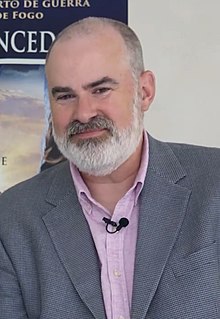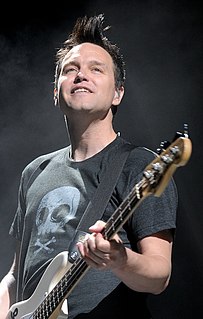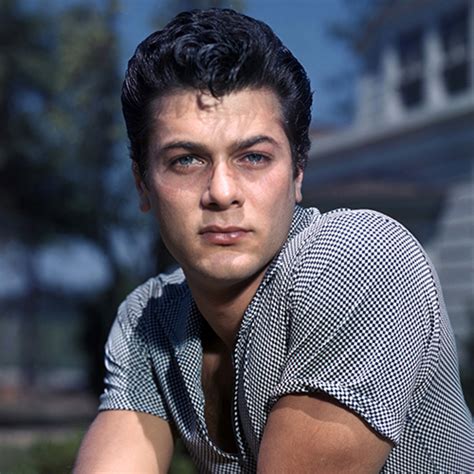A Quote by Khaled Hosseini
I'm glad I wrote them when I did because I think if I were to write my first novel now, it would be a different book, and it may not be the book that everybody wants to read. But if I were given a red pen now, and I went back... I'd take that thing apart.
Related Quotes
I remember as a young child, during one of my frequent trips to the local library, spending hours looking at book after book trying in vain to find one that had my name on it. Because there were so many books in the library, with so many different names on them, I’d assumed that one of them — somewhere — had to be mine. I didn’t understand at the time that a person’s name appears on a book because he or she wrote it. Now that I’m twenty-six I know better. If I were ever going to find my book one day, I was going to have to write it.
Write what you want to read. So many people think they need to write a particular kind of book, or imitate a successful style, in order to be published. I've known people who felt they had to model their book on existing blockbusters, or write in a genre that's supposed to be "hot right now" in order to get agents and publishers interested. But if you're writing in a genre you don't like, or modeling yourself on a book you don't respect, it'll show through. You're your first, most important reader, so write the book that reader really wants to read.
Well, at the end of our movie Fireproof, we released a book that my brother Stephen and I wrote called The Love Dare. It was for couples. That book had a much larger impact than we expected. As a matter of fact, if I could use the term "overwhelmed," we were. The book went on to become a New York Times bestseller and sold over five-million copies and is now in 28 different countries and languages. So, we were blessed and just surprised at how well that did.
The process for writing a picture book is completely different from the process of writing a chapter book or novel. For one thing, most of my picture books rhyme. Also, when I write a picture book I'm always thinking about the role the pictures will play in the telling of the story. It can take me several months to write a picture book, but it takes me several years to write a novel.
In re-reading 'Presumed Innocent,' the one thing that struck me - and I re-read the book four different times in writing 'Innocent,' interested in different things each time - but I did think there were a couple of extra loops in the plot that I probably didn't need. The other thing that sort of amazed me was how discursive the book was.
I think that one of the things that my dad was grappling with towards the end was how that shift had happened now and he would go on a book tour and do his shows and it would be you know fulfilling and good, but he wouldn't have the same impact that he used to and it wasn't because people were less interested. It's just because people are distracted by the million different sources of entertainment and information in front of them at any given time.
I think people take Blink-128 more seriously now than they did before. And it's largely our fault because we called our records Enema of the State and Take Off Your Pants and Jacket. We were always kind of the underdogs, especially critically. People wrote us off as this joke band. But the people who listened to Blink knew that we were silly and whatever, but we wrote songs about divorce and suicide and depression. Those kids that were listening to Blink are now the ones that control all these outlets that used to just write us off.
All I could think of was that the teachers must've found the illegal stash of candy I'd been selling out of my dorms room. Or maybe they'd realized I got my Essay on Tom Sawyer from the Internet without ever reading the book and now they were going to take away my grade. Or worse, they were going to make me read the book.
What I do usually is read the book first, for pleasure, to see if my brain starts connecting with it, as a movie. And then, if I say yes, I read it again, only this time I take a pen and, inside the book, I say, "Okay, this is a scene. I don't need this. I'm going to try this. I'm not going to take this." And then, I use that book like a bible and each chapter heading, I write a menu of what's in that chapter, in case I ever need to reference it. And then, I start to outline and write it. I get in there and it starts to evolve, based on having re-read it again.
On rare occasions there comes along a profound original, an odd little book that appears out of nowhere, from the pen of some obscure storyteller, and once you have read it, you will never go completely back to where you were before. The kind of book you may hesitate to lend for fear you might miss its company. The kind of book that echoes from the heart of some ancient knowing, and whispers from time's forgotten cave that life may be more than it seems, and less.
You can't write a book if you've never read a book. And if you've read five books and you try to write a book, your book will mainly encompass the themes and the context of the five books you've read. Now, the more books you read, the more you can bring to a book when you decide to write one. So the more rap I learned, the more I was able to bring to rap when I decided to rap. But this was all subconscious.







































